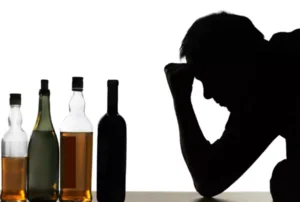
All the alcohol drinking and wine that you’ve been drinking has slowly begun to catch up with you and your belly seems to be popping out. It takes consistent and conscious lifestyle changes to get back into shape. You know that the alcoholic beverage of choice has a good amount of calories and adding mixers in the form of processed juices and sodas will increase that calorie count even more. Foods like pizzas, French fries, and onion rings are loaded with calories and saturated fats.
Is Frozen Food Healthy For You?
These disruptions contribute to a feeling of heaviness and can make your weight measurement a bit higher than usual. If you’re watching your weight, you should stay away from flavored liquors to avoid the added sugars. Let’s say you wake up with terrible anxiety or a mind full of regrets from last night’s behavior.
Does Drinking Alcohol Make You Gain Weight?

Many wonder if saying goodbye to alcohol will get rid of belly fat or the common beer belly. Alcohol, particularly in excess, contributes does drinking liquor make you gain weight to the accumulation of belly fat. (9) This is because the liver prioritizes processing alcohol over burning fat, leading to the storage of excess calories as fat, often around the abdominal area. A controlled quantity of red wine may positively impact the body by maintaining healthy cholesterol levels. However, excessive alcohol consumption has been linked to high levels of cholesterol and triglycerides. Many studies suggest that a moderate intake of red wine may promote health and aid in disease prevention.
Impairment of Other Metabolic Processes
If anything, the less alcohol a whisky has, the more calories it is likely to have. This is because low ABV whiskies, like 33 ABV Fireball, typically have added ingredients and sugars. Most whiskies contain 98 calories per serving, but a flavored, sweetened whisky like Fireball has 108 calories per serving. Most drug addiction stores have many types of beer readily available, such as nonalcoholic beer, light beer, Belgian, India pale ale and stout. As mentioned, whiskey can come in various forms, like bourbon whiskey, Scotch whisky, Irish whiskey and whiskey-based liqueurs.
The Myth of the Beer Belly

This study suggests that alcohol can actually trigger hunger signals in the brain, leading to an increased urge to eat more food. Consuming foods and drinks high in sugar can quickly lead to weight gain. There is no hard-and-fast rule about how much weight—if any—you will lose if you quit drinking for a month. Some people’s bodies and metabolisms take several months to recalibrate after stopping drinking, meaning you may not see any weight loss in the first month. Others—especially people carrying a lot of excess weight—may experience rapid weight loss in the first month without alcohol. Overall, you could expect to lose anywhere from 0 to 15 pounds in one month by stopping alcohol, with the higher end likely only occurring if you have a BMI (Body Mass Index) of 30 or above.
- More human research is needed to understand how alcohol affects hunger.
- But will drinking any alcohol prevent you from losing any unwanted fat?
- Those guidelines advise men to limit themselves to two drinks or fewer per day and women to one drink or fewer per day.
- Remember, these effects are usually temporary, and the additional weight is often not from increased body fat, but from fluid and digestive changes.

Alcohol can actually impede physical fitness and performance by making the heart less efficient at pumping blood and delivering oxygen to the body, negatively impacting aerobic fitness capabilities. Mixed drinks can set you back much further, with a restaurant margarita containing anywhere from 200 to 700 calories, for example. Many beers are also high in calories, with craft beers like IPAs clocking up to 300 calories.
Limiting alcohol

To have enough oxygen available to accept the electrons, the hepatocytes must take up more oxygen than normal from the blood. Consistent with this assumption, studies have shown that ethanol metabolism tends to increase the hepatocytes’ oxygen uptake from the blood (Tsukamoto and Xi 1989). The perivenous hepatocytes also are the first ones to show evidence of damage from chronic alcohol consumption (Ishak et al. 1991), indicating the potential harmful consequences of hypoxia induced by ethanol metabolism.

1 to 2 alcoholic beverages in a day should be able to be burned off by your https://ecosoberhouse.com/ body before they lead to weight gain. Over time, alcohol may make you gain weight if you drink it in excess. Heavy drinking may activate hormones that signal appetite, hunger, and stress. Alcohol is also high in calories but lacks nutrients supporting good health.
Excessive Drinking and Weight Gain
The most important thing is to focus on your recovery from alcohol use disorder and not be discouraged by any possible weight gain. With time and effort, you can make progress not only in your recovery but also in reaching a healthy weight. Red wine and white wine generally have a similar calorie content.






